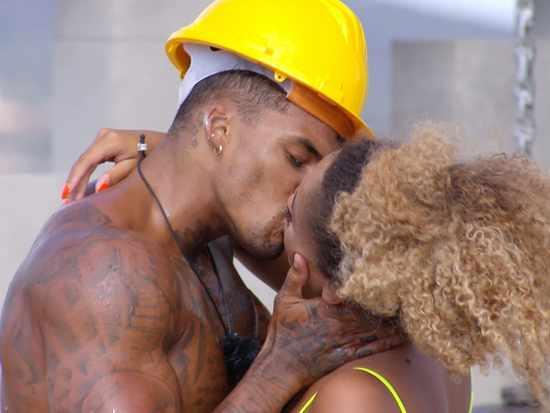Why teachers should show Love Island in schools - 5 minutes read
 Love Island should be shown by teachers in schools
Love Island should be shown by teachers in schoolsStay with me on this one. At face value, showing young, impressionable students a bunch of fame-hungry, rather image-obsessed Gen Z’ers hooking up and breaking up with each other in swift fashion may not seem like the best idea.
However, the discussions Love Island provokes are essential given the current climate of #MeToo and #TimesUp. We need to discuss what behaviour is acceptable and what behaviour is not. And it’s teenagers who desperately need these open conversations.
WatchingLove Islandover the years has made me realise that the show could be used as the most brilliant and effective tool for educating students on points like sexual consent, whether it’s ever ok to call girls “slags”, if a contestant’s behaviour is indeed emotionally abusive, and generally exploring what is acceptable, respectful and healthy behaviour when it comes to dating.
From trends like ghosting to the slightly older phenomenon of sexting, there’s hardly any accountability in dating at the moment. But if teachers showed Love Island in class and went on to discuss and explore morals, values and ethics afterwards, it would be a great way of creating a conversation about how we should conduct ourselves when it comes to dating and relationships.
It is no longer enough to simply cover the bare minimum of sex education. Gen Z’ers and future generations are up against too much to risk that. Pressure comes in at all angles, whether it’s an unrealistic body image egged on by unacheivable standards from social media, or porn pressurising young men and women about how they should behave in the bedroom; there are so many mixed, contradictory messages out there about relationships.
The messages out there for young people today are frilly, unhelpful and rather confusing. They aren’t getting enough of an education about what healthy, modern-day dating consists of, not to mention the fact that what looks good, what you should be doing and what your sex life should look like in a relationship is up to the individual.
My experience of sex education at school can be summed up in one sentence: “Don’t get pregnant, if you do, your future is screwed, the end”. My personal, health, social and economic (PHSE) education wasn’t much better. Every topic brought up was one-dimensional and shallow. In a class that was supposedly meant to be a safe space to talk candidly about issues that matter, emotional abuse, self-esteem, manipulative behaviour and the effect that sex can have on an individual emotionally, physically, as well as the impact on your mental health, didn’t get a look in.
We didn’t ever talk about dating either. But schools shouldn’t underestimate how formative the early stages of a relationship can be, especially for young people, as it’s often the very foundation of any healthy or unhealthy relationship.
Perhaps if I had a better education at these school lessons, I would have had the tools to understand the abusive relationship I ended up in at the age of 22. If I’d have had a better grasp on unhealthy and abusive habits in relationships, I may have been able to spot the signs and red flags much quicker.
Showing the classes different clips of episodes and then having an open forum to discuss whether someone like Maura should openly talk about sex and not get shamed, whether Michael is gaslighting Amber or if Anna overstepped the mark with Ovie, would open up space for an honest discussion in which every student could ask any questions, share their own experiences and ultimately, be educated on what they should or shouldn’t accept in a relationship.
Sure, sometimes these are grey areas which can be complex, subjective and fragile but that’s even more reason to unpick them. In order for the youth of today to go on to have healthy relationships, these conversations are necessary.
Source: Independent
Powered by NewsAPI.org
Keywords:
Love Island (2015 TV series) • Stay with Me (Sam Smith song) • Gen-Z • Love Island (2005 TV series) • Behavior • Behavior • Adolescence • Consent • Call girl • Psychological abuse • Ghostwriter • Sexting • Education • Love Island (2015 TV series) • Social class • Morality • Value (ethics) • Ethics • Interpersonal relationship • Sex education • Gen-Z • Body image • Egged (company) • Social media • Adolescence • Education • Health • Dating • Fact • Value (ethics) • Human sexual activity • Interpersonal relationship • Individual • Experience • Sex education • Pregnancy • Future • Health • Society • Personal, Social and Health Education • Psychological abuse • Self-esteem • Psychological manipulation • Sex • Individual • Social influence • Mental health • School • Interpersonal relationship • Youth • Health • Health • Education • School • Relational aggression • Ageing • Health • Subjectivity • Reason • Youth of Today • Interpersonal relationship • Conversation •